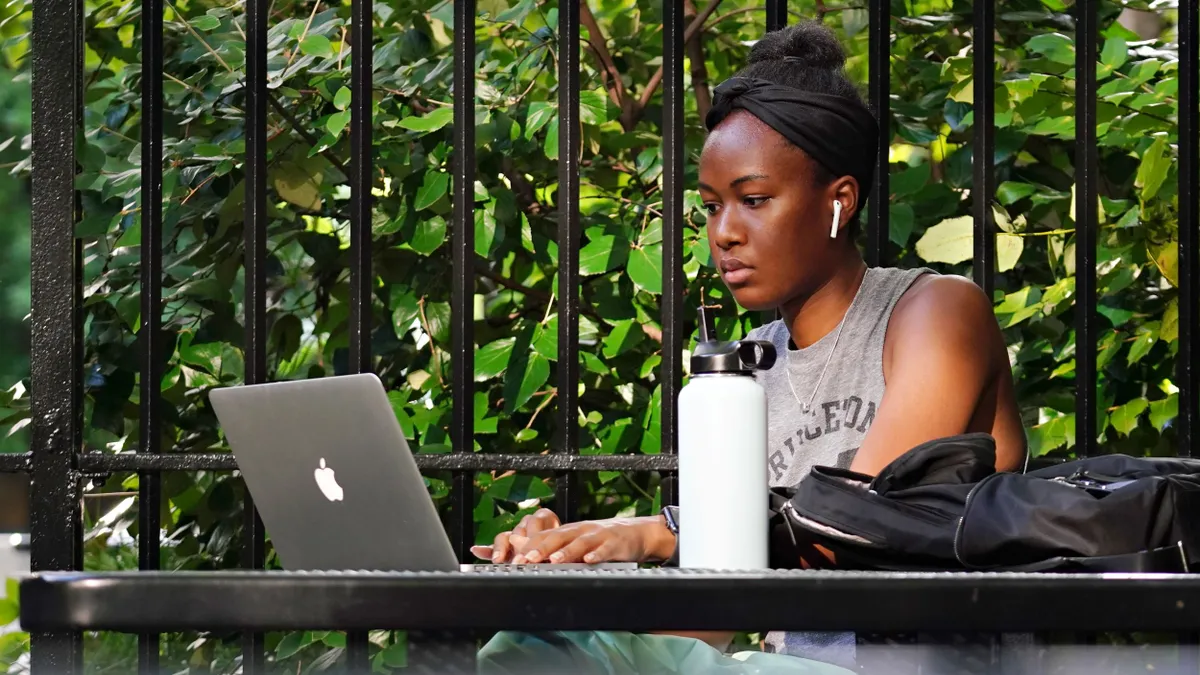Across the board, working adults in the U.S. "somewhat agree" that they speak up against bias and call out DEI issues in the workplace, according to a May 2021 Wharton, Moody's Corporation and DiversityInc report. However, Black, Indigenous and people of color employees more strongly agree that they engage in "speaking up" behavior relative to White respondents. And more than their Hispanic and Asian counterparts as described in the report, Black employees tend to strongly agree that they're vocal against instances of bias in the workplace.
The official and unofficial practices of challenging bias can take many forms. Wharton's study divides the "speaking up" behavior into three categories: promotive voice, supportive voice and prohibitive voice. "Promotive voice" occurs when employees advocate for their company to adopt diversity practices, such as more equitable recruitment policies. "Supportive voice" looks like backing ongoing DEI-related practices, such as a company's robust and active Diversity, Inclusion and Belonging council.
Then there's "prohibitive voice," which is meant to reduce and prohibit certain behaviors that harm marginalized groups. This is what HR professionals most often think of when they hear about employees "speaking up," adds Dr. Stephanie Creary, lead project researcher and assistant professor of management at Wharton.
This mode of DEI engagement can often feel uncomfortable, both for employees and for the co-worker(s) being held accountable. That discomfort doesn't always deter people, Creary told HR Dive. In the study, she said, some questions were mild, such as "I name DEI issues as I see them."
"Something like that says, 'I sense that there's a DEI issue, so I call it out.' 'I think that this is problematic.' Or it could be something on the other end of the curve," she said. "The survey asked questions such as, 'I call out DEI issues, even when that might threaten the relationships that I have with other people.'" Creary said that the study showed BIPOC employees tended to "strongly agree that they did that, relative to White respondents."
Creary and her team of researchers did note some anomalies to this trend. Data from a large, publicly-traded retailer — listed in the report as "Company A" — showed that White, often male, employees lead the charge in speaking up. The women of color who were their co-workers reported some of the least positive experiences: a less positive emotional connection and alignment to their company's goals, and a decreased sense of belonging.
Wharton did interviews with Company A's DEI and HR teams, and one insight Creary shared was in regard to psychological safety. "They could see the hypothesis that people of color may not feel psychologically safe enough to speak up," she said, adding that it may have been a large factor in why White men did feel comfortable speaking out against bias.
If an employer is looking to create a transparent workplace that holds space for all its employees, Wharton offered some key perspectives: 19% of employees said they feel compelled to speak up when there's positive managerial involvement. Likewise, 22.1% of employees said they feel compelled to speak up due to diversity recruiting initiatives, especially ones that lead to increased representation.
Another interesting tidbit from the study: 31.5% of respondents' willingness was attributed to the visibility of what Wharton calls "internal diversity partners." This group of people comprises employee resource groups and DEI affinity networks, such as committees for LGBTQ folks and veterans in the workplace. To take the culture of inclusion a step further, Wharton recommends that managers seek support and resources from company leadership — including those who don't hold formal diversity titles.
And finally, data shows that 27.4% of employees' willingness to speak up comes from DEI training. For example, Wharton suggests educating employees on the factors that contribute to workplace silence. Another idea Wharton posits is putting together an event series where people are invited to share stories about diversity and inclusion.
One of Creary's main takeaways was her team's finding that diversity, equity, inclusion and belonging programs are helpful for employees of all races and genders. "Sometimes, I think people think that diversity [programming] is just for marginalized groups. It definitely is there to support marginalized employees. It was created, without a doubt, to provide support to marginalized groups, because they weren't getting the support organically," she says. "What I think is also promising is: Even though White participants may not necessarily need these [DEI initiatives and] practices to the same extent to enhance their engagement, they actually did enhance White people's engagement."




















